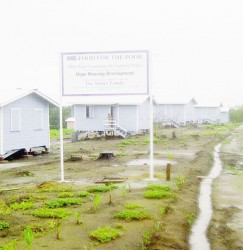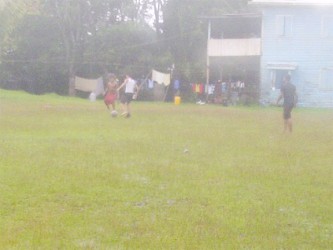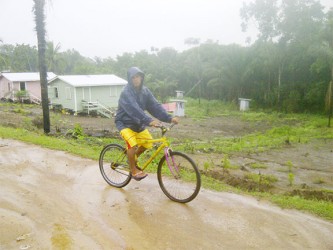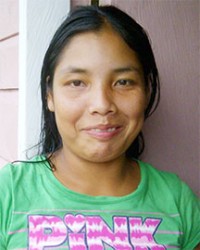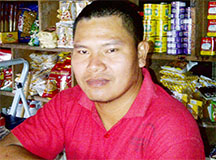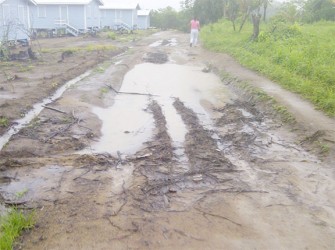Whitewater Village is a community in Region One, Barima-Waini, just a few miles from the border with Venezuela. The community was established in the 1970s by a group of farming families from the Warrau tribe, who had been living on the border. The founding members included Phelomina David, Theresa David, Paul Daniels, Nash Thompson and Leonard Cyrus. The first Toshao – or what was known as Captain at that time – was Lewis Salvador.
The families used the settlement as a secondary, inland base, where they farmed, selling their produce to the Venezuelans. The crops cultivated in those days included paddy and corn but the residents have since diversified their activities. After the community grew in size, they decided to take up permanent residence in Whitewater , which is named after the creek which flows through it. In those days, there were no roads connecting the residents to the other satellite communities throughout the region, so boats were used to get around and transport some of their produce through the forest terrain.
The current Toshao, Ernest Samuels told Sunday Stabroek that Whitewater’s history is commemorated constantly. The fifth generation Toshao said that stories are told at family gatherings and community gatherings which are held frequently, since it’s a small, close-knit community. The village in its early days had a population of approximately 150 persons but has since grown to 1200 according to a 2013 census.
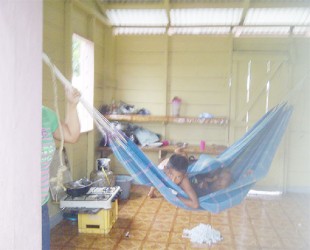
Farming is still the main occupation for the community members. Today they farm cassava, ginger, corn, yam and peanuts, while some fish and hunt wild meat such as hog, deer, labba, cow and agouti. Their livelihood is pursued on a level just above subsistence, since they sell their goods at the Kumaka Market, some 20 miles away. Samuels said that the community could do much more farming and livestock rearing but the lack of a large enough market hinders them.
There is a large playground at the centre of the main part of Whitewater where the primary school and community centre are located. There is also a pavilion at the front of the playground, and the ground is encircled by houses with large gaps between them. Electricity is supplied using a generator that powers homes which pay a $200 daily fee for current from 6pm to 10pm. Each household is also equipped with solar panels which are capable of fuelling a few light bulbs. Water of drinking quality is provided for one hour at 3pm every day. This is supplied using a submerged pump, powered by solar energy that fills 5 large capacity black tanks. Persons queue at the said time to fill their drums with enough water to last them until the following day. They use water from ponds to wash, clean and bathe.
Sport is a major recreational activity, according to Samuels. He said that once weekly games of cricket and football are organized within the community. He further mentioned that both male and female teams participate in events hosted by Whitewater, when either outside teams are invited to come and play or the home teams visit other villages for matches.
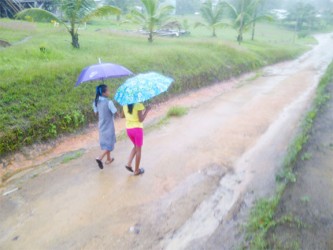
Christianity is the only religion practised, with several denominations being established in the community, namely the Seventh Day Adventists, Jehovah’s Witnesses, Pentecostals and Catholics.
Speaking of development in the community, Samuels said that they receive governmental financing in the form of a yearly budget which goes a long way to helping them. He explained that this year he unsuccessfully lobbied to have Warrau classes institutionalized because they are losing their language. He was grateful for all the government has been doing to foster growth and development, making specific mention of the school and the bus donated for the transport of people and schoolchildren. The school however only offers primary education. Secondary education is available at the Wauna Secondary School, some 6 miles distant.
Whitewater also has a health centre that offers basic services, but for major ailments, persons are required to travel to the Maburama Hospital in the region’s town located some 21 miles
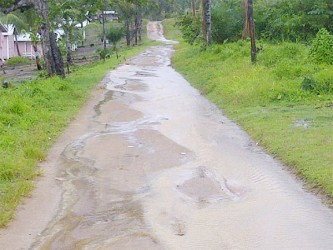
away. Cell service is available but landline telephones are not. Samuels in his closing remarks expressed great love for his community and said that they don’t have issues of crime or domestic violence and described his community as thriving with a bright future.
Several residents who were spoken to all seemed to have the same thing to say, ie, Whitewater is a tranquil community but jobs are needed. They also complained about the state of the roads in the region, which affects the cost and frequency of travel, and hinders economic activity. They all felt that the government and humanitarian missions were doing much to help them develop, but bemoaned the economic situation which seemed to be affecting everyone.
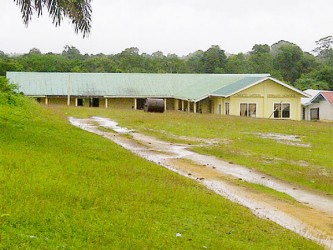
In 2007 a multipurpose primary school was built, and in 2010, a pineapple farm was launched to cultivate larger amounts of crops to be sold to the Amazon Caribbean Company limited, but this has failed to deliver on its expectations. In 2013, 27 persons benefited from having their roofs redone under the Ministry of Housing and Water’s second Low Income Settlement Programme, and this year forty families were the beneficiaries of the Food For The Poor (FFTP) humanitarian Community Development project, with promises being made to equip the community with computers in the future.
One resident who spoke to Stabroek Sunday stood out. This was Victor Thom, a 44-year-old calypso singer, with 10 children. The man could not perform a rendition for Sunday Stabroek because of the loud pitter-patter on the roof of his home where he was interviewed, which made even talking difficult. However, he said that he loves singing and performs for visitors including the Amerindian Affairs Minister, when she last visited. He said that he wants to use his skills to harness the talent the children of Whitewater possess instead of having them idle, which is the case currently. However he said that he would need the support of the village leadership for this task but expressed some pessimism about this happening.
